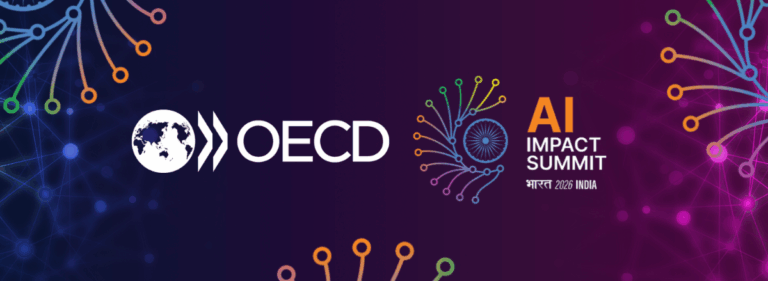The OECD programme on AI in Work, Innovation, Productivity and Skills (AI-WIPS) - with the support of Germany – analyses the impact of AI on the labour market, skills and social policy.
Classification

On 25 February, the conference was the platform for launching the OECD AI Systems Classification Framework at the Second International Conference on AI in Work, Innovation, Productivity, and Skills. The OECD.AI Network of Experts developed the framework with the help of public feedback to make it more robust and useful for policy makers and other stakeholders. Register now.
AI systems have become part of virtually every aspect of our daily lives with varying degrees of complexity, and the workplace and labour markets are no exception. If policy makers are to keep up, they must be able to understand AI systems. For that to happen, it is important to establish AI system classifications and taxonomies. In addition to coherent policies and regulatory approaches, AI classification will help to develop meaningful indicators and statistics. Any international or cross-sectoral comparisons will need a classification tool for accurate and like-for-like measures across policy areas. When it comes to the workforce, these comparisons will be essential for monitoring AI diffusion and its impact on labour and education. To address this need for a common classification system, the OECD is focusing on five activities:
- Develop user-friendly framework to classify AI systems
- Define core technologies and applications related to AI
- Map augmenting and labour-saving technologies related to AI
- Develop OECD guidance for measuring AI in existing surveys, particularly R&D and innovation surveys
- Define and classify AI technologies found in the work environment
Blog posts
More related postsVideos
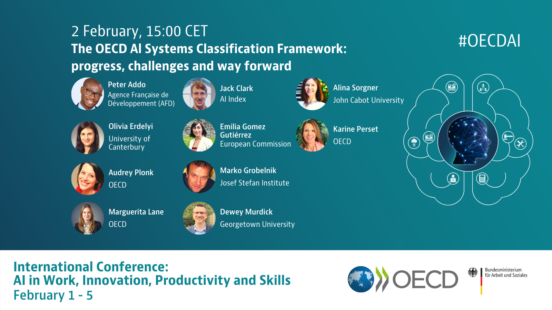
The OECD Al Systems Classification Framework
–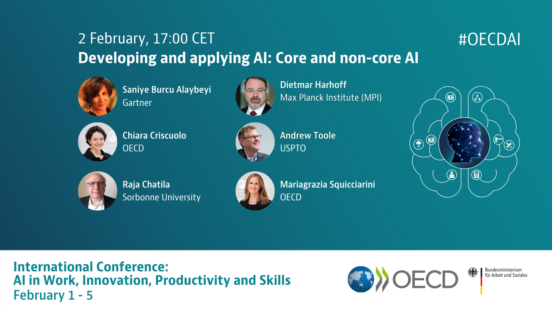
Developing and applying AI: Core and non-core AI
–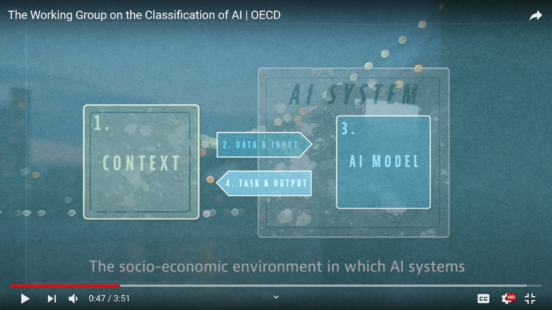
The OECD Framework for the Classification of AI Systems
–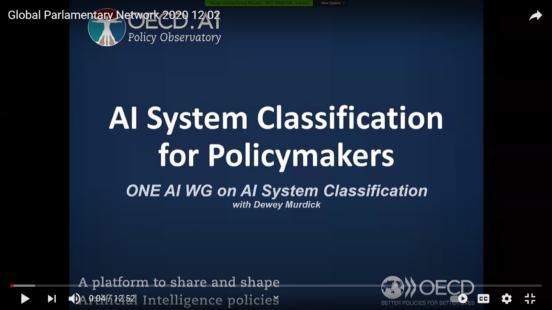
AI System Classification for Policymakers
–
Developing a Classification of AI Systems
–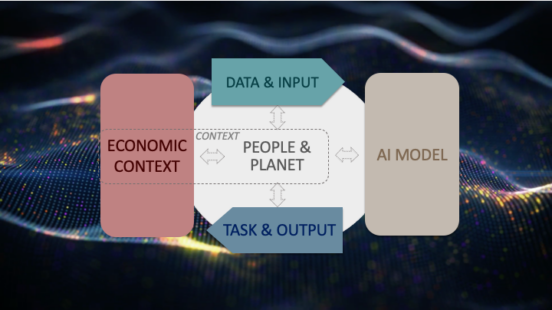
Enabling effective AI policies: Launch of the OECD Framework for Classifying AI Systems
–Publications
Advancing accountability in AI
This report presents research and findings on accountability and risk in AI systems by providing an overview of how risk-management frameworks and the AI system lifecycle can be integrated to promote trustworthy AI. It also explores processes and tec...
AI measurement in ICT usage surveys
This paper takes stock of official statistics on AI use in firms collected through ICT usage surveys. Its aim is to highlight statistically sound data that can be used to guide policymakers and other stakeholders in the complex field of AI. It provid...
Identifying and measuring developments in artificial intelligence: Making the impossible possible
This paper identifies and measures developments in science, algorithms and technologies related to artificial intelligence (AI). Using information from scientific publications, open source software (OSS) and patents, it finds a marked increase in AI-...
Scoping the OECD AI principles: Deliberations of the Expert Group on Artificial Intelligence at the OECD (AIGO)
Artificial intelligence (AI) is reshaping economies, promising to generate productivity gains, improve efficiency and lower costs. At the same time, AI is also fuelling anxieties and ethical concerns. As AI’s impacts permeate our societies, its trans...
Artificial Intelligence and Employment – New Evidence from Occupations Most Exposed to AI
In recent years, Artificial Intelligence (AI) has made significant progress in areas like information ordering, memorisation, perceptual speed, and deductive reasoning – all of which are related to non-routine, cognitive tasks. As a result, the occup...


























